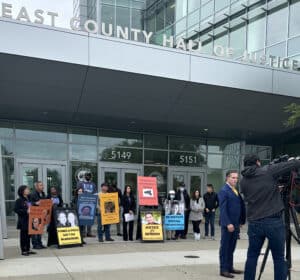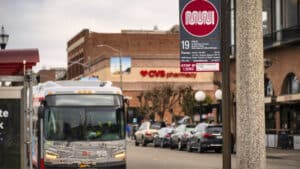Unfortunately, and incomprehensibly, we are growing accustomed to seeing daily news reports of human trafficking and exploitation of children and adults. Thanks to the internet, this multi-billion dollar industry, which boasts over 100,000 dedicated websites, is among the fastest growing online business sectors in the United States. At what point do we say enough already? The answer is NOW!
Human trafficking cannot be ignored or denied any longer. This topic can be extremely uncomfortable to acknowledge, but we can make a difference by being proactive. This is a matter of life and death!
Every one of us has the potential to discover and report a human trafficking situation. While some victims are kept behind locked doors, others are often hidden right in front of us in such locations as construction sites, restaurants, elder care centers, nail salons, agricultural fields, escort services, truck stops, and hotels. You can learn indicators of human trafficking and effective questions you can ask in order to empower yourself to act when your gut tells you that something is wrong and make a real difference.
Traffickers’ use of coercion — such as threats of deportation or physical harm to the victim or family members — is so powerful that, even if you reach out to victims, they may be too fearful to reach out for or accept your help. Therefore, it is important to recognize the enormous amount of courage it takes if a trafficked victim to reach out for help and action should be taken immediately to remove them from their abuser. When a human trafficked victim does reach out to someone, they probably want out now.
The suggestions set forth in this article are not exhaustive and are merely a starting point. Starting the conversation and educating ourselves and others is the critical first step in ending human trafficking.
What to look for
Some key red flags to alert you to a potential trafficking situation that should be reported:
– Suspected victim is living with employer;
– Poor living conditions, including blocking windows so others cannot see inside;
– Multiple children/people in cramped space and rarely seen, with numerous adults coming in and out of the property;
– Inability to speak to a suspected victim alone;
– If you are able to speak with the suspected victim, the answers appear to be scripted and rehearsed;
– Employer is holding identity documents;
– Signs of physical abuse;
– Suspected victim appears submissive or fearful;
– Very little or no payment;
– Prostitution of children under 18.
Questions to ask:
Assuming you have the opportunity to speak with a potential victim privately and without jeopardizing the victim’s safety, here are some sample questions to ask:
– Can you leave your job if you want to?
– Can you come and go as you please?
– If you have tried to leave, have you been hurt or threatened?
– Has your family been threatened?
– Do you live with your employer?
– Where do you sleep and eat?
– Are you in debt to your employer?
– Do you have your passport/identification? Who has it?
Where to get help and education about human trafficking
If you believe you have identified someone currently in the trafficking situation, alert local law enforcement immediately by calling 911. You may also want to alert the National Human Trafficking Hotline at 1-888-373-7888, a national 24-hour, toll-free, multilingual anti-trafficking hotline. It may be unsafe to attempt to rescue a trafficking victim on your own. You have no way of knowing how the trafficker may react and retaliate against the victim or you.
If, however, you identify a victim who has escaped the trafficking situation, there are a number of organizations to whom the victim can be referred for help with shelter, medical care, legal assistance, and other critical services. Call the National Human Trafficking Hotline at 1-888-373-7888 to report a tip, connect with anti-trafficking services in your area, or request training and technical assistance, general information, or specific anti-trafficking resources. The Hotline is equipped to handle calls from all regions of the United States from a wide range of callers, including potential trafficking victims, community members, law enforcement, medical professionals, legal professionals, service providers, researchers, students, and policymakers.
Polaris, another nonprofit organization, provides human trafficking victims and survivors with critical support, local resources, training, and solutions to eradicate human trafficking. You can contact them to get help and stay safe through the BeFree Text line (text HELP to 233733) or 202-790-6300.
Everyone wants human trafficking stopped. Starting a discussion and educating others will make a difference! Will you accept this challenge?










